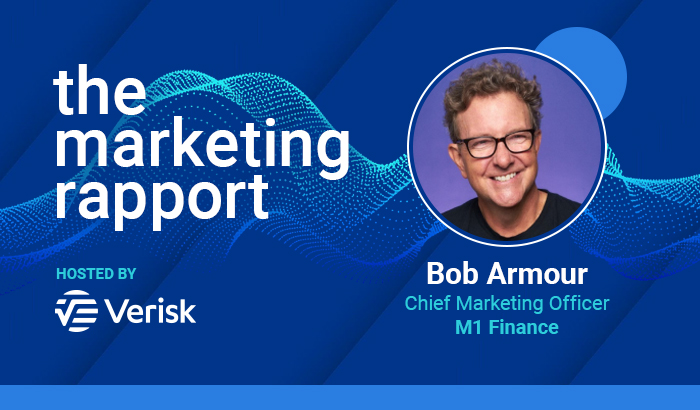Identity Revolution: HubSpot’s Scott Brinker Talks MarTech Trends, Industry Predictions
Scott Brinker has been forging connections between marketing and technology since the internet was in its infancy.
He started out as “a hybrid software developer/entrepreneur,” and became interested in the constantly improving digital tools he was using to market his products. In 2008, he founded a blog about the field, Chief Marketing Technologist, and nine years later joined HubSpot as VP of Platform Ecosystem.
“The common thread has always been finding ways to intersect between the culture of technology and software and marketing,” Scott says. “It’s been a real challenge for marketers who’ve had to figure out to integrate these different pieces. I’ve always felt that that’s a responsibility the MarTech vendor community needs to own. So when HubSpot invited me to help them with that mission, I was thrilled to join.”
In a recent episode of Identity Revolution, Scott lays out how technology shifted the dynamics of marketing, his favorite marketing technology trends to emerge in 2020, and why an abundance of marketing software companies is a positive.
The Digital Revolution Gave the Power to the Consumer
The evolution of the digital environment from gimmick to critical parallel to the “real” world has changed how marketers operate.
“Marketing has a set of core responsibilities that have been pretty consistent for a while: communications to the marketplace, identifying customers, promotion, and B2B demand generation,” Scott says.
While the goals of marketing remain consistent, the development of new technologies over the past 20 years has revolutionized how marketers do their jobs. Even big ad agencies need external help navigating the most effective ways to use emerging marketing software.
“Companies need a tremendous amount of help with this stuff. There’s just so much change happening and the expertise is still so new that for many businesses, it’s not an option to say, ‘We’ll just do this all ourselves,’” Scott says.
While marketers have been learning how to wield their newfound tools, Scott says, those same digital innovations have also changed the dynamic with customers.
“Customers are finally in a position of great power: they’re able to share what their experience was like with the rest of the world very easily,” he says.
That means marketers have to think about the big picture. “At so many companies, this has put marketing into a role where it’s not just about the communications or the demand generation: it’s how do we think about customer experience holistically? We look at these touchpoints across the customer life cycle as a part of our marketing engine.”
The Trend Empowering Marketers to be Makers
Always on the lookout for emerging marketing technology trends, Scott noted several that had been growing in previous years and gathered steam in 2020.
First, “There’s a lot of innovation happening around data management and insights,” he says. Now marketing teams have finally got a handle on effective methods for collecting and storing data, “they’re starting to layer on all sorts of other applications that take advantage of that. It’s partly for analysis, but also partly to see how we can impact customer experience.”
Similarly, artificial intelligence (AI) continues to leap forward. “I know this has been hyped to death,” Scott says, “but it’s becoming very real. These machine-learning models are being embedded in so many different products… it’s crazy what some of this stuff can do.”
However, Scott is most excited about the no-code movement — the emergence of software and tools that enable anyone to create impressive-looking digital products, from graphic design to apps. As the name implies, you can build without any prior coding knowledge.
“Now we’ve got software that lets a non-expert — a general marketer — build these things. They’re not creating super-advanced, sophisticated things — you still need expert tools for that — but there are so many of these lower- to mid-end use cases in marketing, and all of a sudden we’ve empowered pretty much everyone to make that stuff happen on their own,” Scott says.
He thinks no-code is just going to get bigger: “This trend has certainly exploded in this past year, and I have the impression that it’s just getting started.”
The planet and satellites theory of MarTech
As someone who has been tracking the evolution of marketing technology from its Big Bang moment to its ever-expanding present, Scott is all too aware of just how many options there are to choose from.
“If we were to count all the MarTech companies in the world today, there’s no doubt in my mind it would be over 10,000,” he says.
But that’s not necessarily a bad thing. “Android and iPhone have millions of apps. But how many times do you hear people complaining, ‘There’s just too many apps in the Apple app store, stop the madness!’” he says. “It’s not an issue because people find the things that are relevant to them, and if they don’t like it, they toss it.”
Scott admits that this isn’t an exact parallel to building a marketing tech stack: you can’t just drag and delete a product you’ve invested in when it doesn’t live up to your expectations!
However, he believes that ultimately there will be a small pool of foundational platforms surrounded by constellations of smaller apps, which will function as plug-ins users can incorporate to tailor their experiences.
“We’re starting to see this explosion of ecosystems around these platforms that include much smaller products that aren’t necessarily going to become the next billion-dollar MarTech firm,” he says. “These firms specialize in something, they do it really well, and it plugs into the rest of the stack.”
WordPress is an example — its ecosystem hasabout 60,000 plugins, according to Scott. That includes HubSpot, by the way. “Not all of those are worth talking about, but there’s this huge long tail of specialized extensions that plug in on top of WordPress.”
Contact us to see how Infutor helps MarTech / AdTech providers drive innovation and provide more value for clients.
Note: This is based on an episode of Identity Revolution, Infutor’s podcast featuring data-driven experts discussing all things marketing, analytics and identity.







 Your Privacy Choices for Platform Services | Data Services
Your Privacy Choices for Platform Services | Data Services